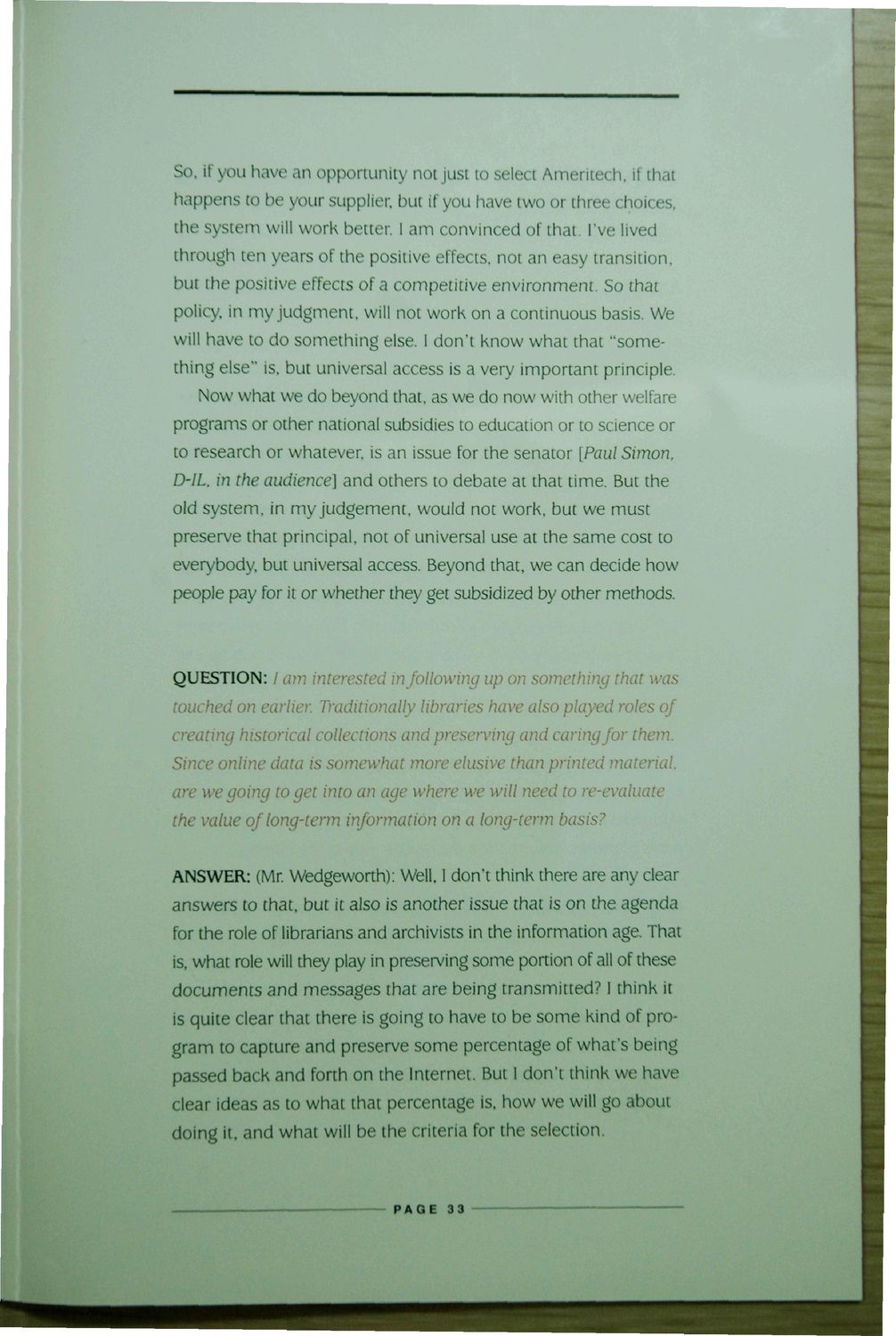| |
| |
Caption: Dedication - Grainger Engineering Library Symposium
This is a reduced-resolution page image for fast online browsing.

EXTRACTED TEXT FROM PAGE:
So, if you have an opportunity not just to select Ameritech, if that happens to be your supplier, but if you have two or three choices, the system will work better. I am convinced of that. I've lived through ten years of the positive effects, not an easy transition, but the positive effects of a competitive environment. So that policy, in my judgment, will not work on a continuous basis. We will have to do something else. 1 don't know what that "something else** is, but universal access is a very important principle. Now what we do beyond that, as we do now with other welfare programs or other national subsidies to education or to science or to research or whatever, is an issue for the senator [Paul Simon, OIL, in the audience] and others to debate at that time. But the old system, in my judgement, would not work, but we must preserve that principal, not of universal use at the same cost to everybody, but universal access. Beyond that, we can decide how people pay for it or whether they get subsidized by other methods. QUESTION: / am interested in following up on something that was touched on earlier. Traditionally libraries have also played roles of creating historical collections and preserving and caring for them. Since online data is somewhat more elusive than printed material are we going to get into an age where we will need to re-evaluate the value of long-term information on a long-term basis? ANSWER: (Mr. Wedgeworth): Well, I don't think there are any clear answers to that, but it also is another issue that is on the agenda for the role of librarians and archivists in the information age. That is, what role will they play in preserving some portion of all of these documents and messages that are being transmitted? 1 think it is quite clear that there is going to have to be some kind of program to capture and preserve some percentage of what's being passed back and forth on the Internet. But I don't think we have clear ideas as to what that percentage is, how we will go about doing it, and what will be the criteria for the selection. PAGE 33
| |